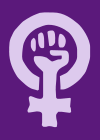Othermother
For the fictional character "Other Mother", see Coraline
An othermother is a woman caring for children who are not biologically her own.
Scope
Othermothers are women, including mothers, who provide care for children who are not biologically their own. The institution of othermothers was a common practice in African-American communities in America since early as slavery and has roots in the traditional African world-view. "Care" could be in the form of providing a meal, essentially adopting the child, or simply supplying guidance. Othermothers believed that "good mothering" comprises all actions, including social activism, which addressed the needs of their biological children as well as the greater community.
Stanlie M. James defines the concept of the community othermother as the women in African-American communities who assist blood mothers in the responsibilities in child care for short to long-term periods, in informal or formal arrangements.[1] James finds that othermothers are usually over the age of 40 because they must have a sense of the community's culture and tradition before they can exercise their care and wisdom on the community. Othermothers are politically active in their community, as they critique members and provide strategies to improve their environment.[2]
A study by sociologist Cheryl Gilkes examines women leaders in a Northern, urban community. Gilkes suggests that community othermother relationships can be essential in stimulating black women's decisions to become social activists. Many of the black women community activists in her study became involved in community organizing in response to the needs of their own children and of those in the neighborhood.[3]
Patricia Hill Collins discusses the othermother relationship and references Gilkes study. Patricia Hill Collins explains othermothers as women who held the family infrastructure together by their virtues of caring, ethics, teaching, and community service. They can be sisters, aunts, neighbors, grandmothers, cousins, or any other woman who steps in to relieve some stress of intimate mother-daughter relationships. They are considered to be the backbone of the black race and give anything that they can to communities, and often what they cannot. Collins also discusses the "mothering the mind" relationships that can develop between black othermothers and other females who effectively become their students. These relationships move toward the mutuality of a shared sisterhood that binds black women as community othermothers. Community othermothers have made dramatic contributions by creating a new type of community in often hostile political and economic situations. Collins concludes by stating that othermothers' participation in activist mothering demonstrates a rejection of individualism and adapts a different value system where ethics of caring and personal accountability move communities forward.[4]
Today, the concept of the othermother is present within the urban elementary schools, and African-American female educators play an integral role in fulfilling the psychological and educational needs of the urban child.
See also
References
- ↑ James, Stanlie M. (1993). "Mothering: A possible Black feminist link to social transformation". In Stanlie M. James and Abena P. A. Busia. Theorizing Black Feminisms: The visionary pragmatism of black women. London: Routledge. p. 45. ISBN 0-415-07336-7.
- ↑ James, Stanlie M. (1993). "Mothering: A possible Black feminist link to social transformation". In Stanlie M. James and Abena P. A. Busia. Theorizing Black Feminisms: The visionary pragmatism of black women. London: Routledge. p. 47. ISBN 0-415-07336-7.
- ↑ P. Collins, Patricia Hill. "Black Women and Motherhood", Black Feminist Thought. New York: Routledge, 2000.
- ↑ Collins, Patricia Hill. "Black Women and Motherhood." Black Feminist Thought. New York: Routledge, 2000.
